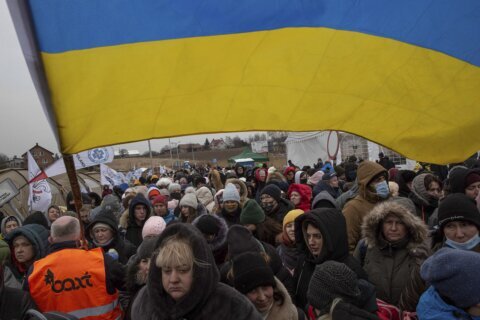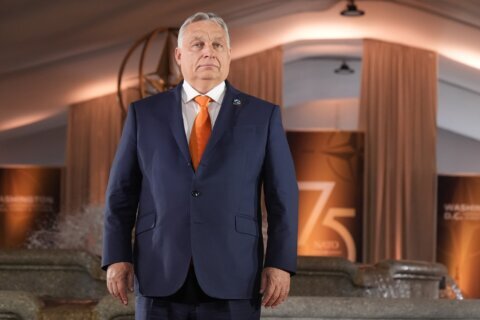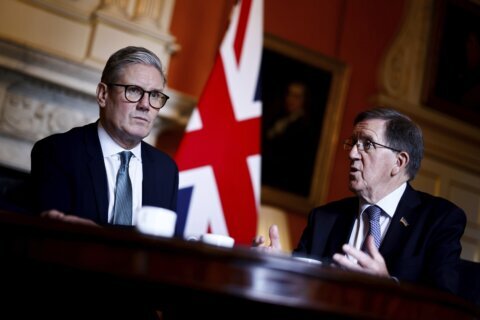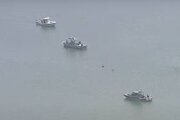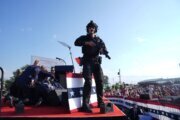From the hush of isolated Siberian villages to the clamor of big cities to war battered towns in occupied parts of Ukraine, Russians voted in a presidential election overwhelmingly dominated by Vladimir Putin.
With ballots counted from about 30% of precincts on Sunday evening, Putin was clearly headed for victory, notching more than 85% of the vote, according to the national election commission.
Putin’s glide to another six-year term was never in doubt. The other three candidates on the ballot were all from Putin-friendly parties and the early results showed none of them gathering double-digit support. Under Putin, opposition forces in Russia are firmly suppressed; two politicians who oppose the war in Ukraine were denied slots on the ballot.
Despite the oppression, there were quiet signs of protest in Moscow and other cities, where long lines of voters formed at polling stations at midday, following a strategy devised by opposition stalwart Alexei Navalny shortly before his still-unexplained death in a prison in February. The action was aimed at showing showing authorities that sizable numbers of Russian oppose Putin, even though they had no genuine alternative to vote for and risk jail for overt protest.
Opposition was more visible at Russian embassies where citizens living abroad could vote. Navalny’s widow Yulia voted at the embassy in Berlin, standing in line some five hours to do so, and told reporters that she wrote her late husband’s name on the ballot.
At a protest near the Berlin embassy, a protester held a sign showing a man’s face disfigured by stitches in the shape of a Z — the letter emblazoned on Russian military vehicles in Ukraine.
Putin, first elected in 2000, is the longest-serving Russian leader since Soviet dictator Josef Stalin. His new term would allow the 71-year-old to stay in office until 2030 and he could run for one more term after that.
Copyright © 2024 The Associated Press. All rights reserved. This material may not be published, broadcast, written or redistributed.

